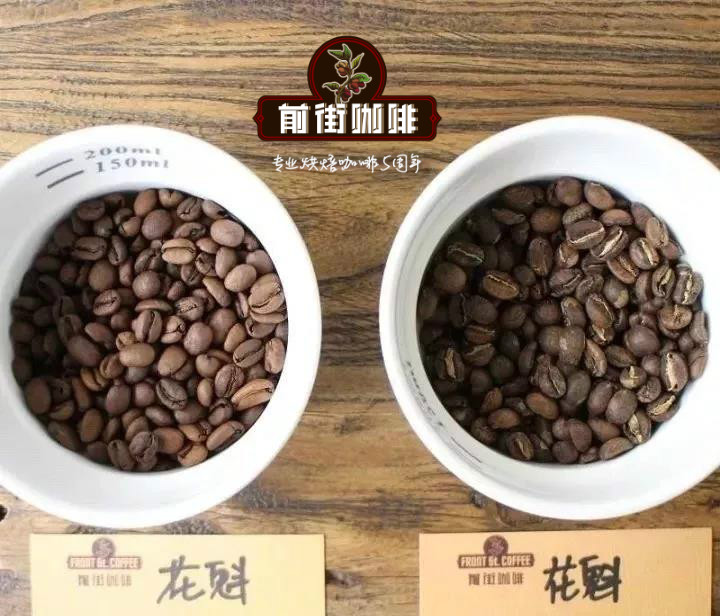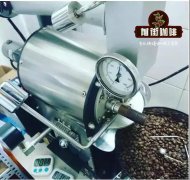The Cooperative of Guanacaster Coffee Manor in Costa Rica introduces the characteristics of coffee bean treatment.

Professional coffee knowledge exchange more coffee bean information please follow the coffee workshop (Wechat official account cafe_style)
Altitude: 1200-1600 m
Region: Guanacaster, Costa Rica
Taste Note: lemon
Arabica coffee variety: Catuai
If you have been to Costa Rica, you are likely to bask in the sun on the beach in Guanacaster, Costa Rica.
Sunnier and drier than other parts of the country, the province is one of the country's main tourist destinations. Although it is famous for its landscape and Pacific coastline, there are areas suitable for coffee production in the colder mountains. The soil conditions, climate, altitude and coffee varieties used in Guanacaste can produce very smooth coffee, achieving a good balance between body, aroma and acidity.
Guanacaster is the core coffee of Ally Coffee from the Coopedota Cooperative in Santa Maria de Dota, Tarraz ú, Costa Rica. Here, Bram de Hoog, a Central American buyer of Ally in San Jose, Costa Rica, shares the history and business principles of Coopedota, an innovative coffee cooperative since its inception.
Coopedota is one of the most modern cooperatives in Costa Rica. It not only has modern processing technology, but also is one of the most forward-looking and characteristic coffee cooperatives. The cooperative started with a small number of brave producers in 1960 and has a budget of only $300. Over the past 58 years, cooperatives have won many accolades and have become a pioneer in the Costa Rican coffee industry.
The cooperative in Guanacaster, Costa Rica has several hundred members near "Dotas" in the Tarraz ú region. & # 39 * is one of the few towns, such as Santa Maria de Dota,San Pablo de Dota and San Marcos de Dota. Since the first coffee trees were planted in these towns, Dota caffeine has gained an international reputation for its quality. Due to its unique microclimate and multi-generation commitment to quality agriculture, the region produces excellent coffee. The microclimate is based on farms up to 2000 meters above sea level, located on plots between even higher hillsides, creating an oasis where coffee plants enjoy the benefits of high altitude, but do not have to compromise with extreme weather.
Coopedota is located in the largest town in the region: Santamar í ade Dota. Cooperatives are the central part of the community, and almost all neighboring towns are connected to it in some way. Coopedota keeps the tradition of coffee. Every year, 15 local high school students graduate from joint barista courses and then continue to participate in competitions and other coffee-related businesses and activities. The cafe El Privilegio, adjacent to the Coopedota factory and office, overlooks the main road to the town. The staff of the cafe are graduates of the Coopedota farm-to-cup course. Starting with nursery techniques and management through pests and plagues, harvesting and grinding, the course ends the barista skills course.
Modeling RueDota
Coopedota runs coffee cooperatives in many ways. First, cooperatives have relatively high barriers to entry for producers. The producer of the cooperative, as part of the owner of the enterprise, has agreed to be cautious about who is accepted as a member. The main factor in this process is the internal certification system used by cooperatives to determine the potential quality of member coffee based on the height of the farm and the variety planted. Only growers of pure Arabica strains on the plantation (meaning that no hybrids were crossed with rust-proof Devon hybrids from Robusta) were eligible to supply coffee to the AA product line, for which they received a premium. In addition, if the float of coffee is less than 4%, it will become part of the AAA product line, bringing a greater premium to producers.
Remove the coffee fruit to be measured on the Coopedota wet grinder.
In addition, Coopedota is one of the only cooperatives in Costa Rica that use water-washing fermentation processing technology. Almost all other wet mills, cooperative and private, use mechanical precipitators to mechanically remove mucus by wiping off mucus immediately after the beans are removed from cherries, rather than fermenting coffee and then washing off loose mucus during fermentation. . The use of washed fermentation processes produces unique flavor characteristics, which are not common in other parts of Costa Rica. This method is not common in Costa Rica because of water permits. CoopeDota has been licensed because the water used comes only from the terrain owned by the henhouse and is fully recycled or reused. In addition, CoopeDota is the first carbon-neutral coffee cooperative to be certified.
Commitment to environmental management is another aspect of Coopedota's forward-thinking approach to coffee production. Coopedota protects protected wild forests, natural parks for recreation and freshwater resources in the area. Coffee pulp is composted on several farms in Coopedota, using EM (effective microorganisms) to speed up the process. Cooperatives use it as fertilizer on farms and provide it to members.
Biomass energy from other organic wastes (cutting weeds / grass, coffee parchment, pulp) is used to create biogas, which can be used for heating and fuel. The aguas mieles or "sugar water" left after washing the coffee is sprayed on the star grass that can be used as cattle feed. Use contaminated water as a fertilizer to effectively reuse retreated water.
The coffee produced by Guanacaster Coopedota, Costa Rica is the first proven carbon-neutral coffee that can be used on the international market. Auditor Carbon Clear validated PAS 2060, developed by the British Standards Institute, in response to the need for a consistent approach to assessing life-cycle greenhouse gas emissions related to products or services.
Clean, sun-dried, washed coffee from Coopedota.
Since its inception in 1960, Coopedota's goal has been to gain the stability of its members from coffee. Guanacaster Core Coffee uses Dota's AA Coffee, reflecting the dedication of the cooperative as an organization and as a member of experienced coffee producers, while providing rich and complex local conditions in the Dota region.
Important Notice :
前街咖啡 FrontStreet Coffee has moved to new addredd:
FrontStreet Coffee Address: 315,Donghua East Road,GuangZhou
Tel:020 38364473
- Prev

Characteristics of Regional Flavor in Guanacaster Coffee growing Environment, Costa Rica
Professional coffee knowledge exchange more information about coffee beans Please follow the coffee workshop (official Wechat account cafe_style) Guanacaster, Costa Rica. The effects of high temperature and dry climate make beans long and easy to roast. The drink is smooth, light body and acidity, with a very clear salty and bitter taste. The Guanacaster Coffee area in Costa Rica is characterized by its distribution in a smaller area.
- Next

Hawaiian Kona Coffee is not equal to Hawaiian Coffee authentic Kona Coffee
Professional coffee knowledge exchange more coffee bean information please follow the coffee workshop (Wechat official account cafe_style) have you tried Hawaiian Kona coffee? Once this silky coffee hits your taste buds, you will experience the best part of your first real coffee and you will understand why it is in demand around the world. Before realizing that something terrible has happened
Related
- Does Rose Summer choose Blue, Green or Red? Detailed explanation of Rose Summer Coffee plots and Classification in Panamanian Jade Manor
- What is the difference between the origin, producing area, processing plant, cooperative and manor of coffee beans?
- How fine does the espresso powder fit? how to grind the espresso?
- Sca coffee roasting degree color card coffee roasting degree 8 roasting color values what do you mean?
- The practice of lattes: how to make lattes at home
- Introduction to Indonesian Fine Coffee beans-- Java Coffee producing area of Indonesian Arabica Coffee
- How much will the flavor of light and medium roasted rose summer be expressed? What baking level is rose summer suitable for?
- Introduction to the characteristics of washing, sun-drying or wet-planing coffee commonly used in Mantenin, Indonesia
- Price characteristics of Arabica Coffee Bean Starbucks introduction to Manning Coffee Bean Taste producing area Variety Manor
- What is the authentic Yega flavor? What are the flavor characteristics of the really excellent Yejasuffi coffee beans?

